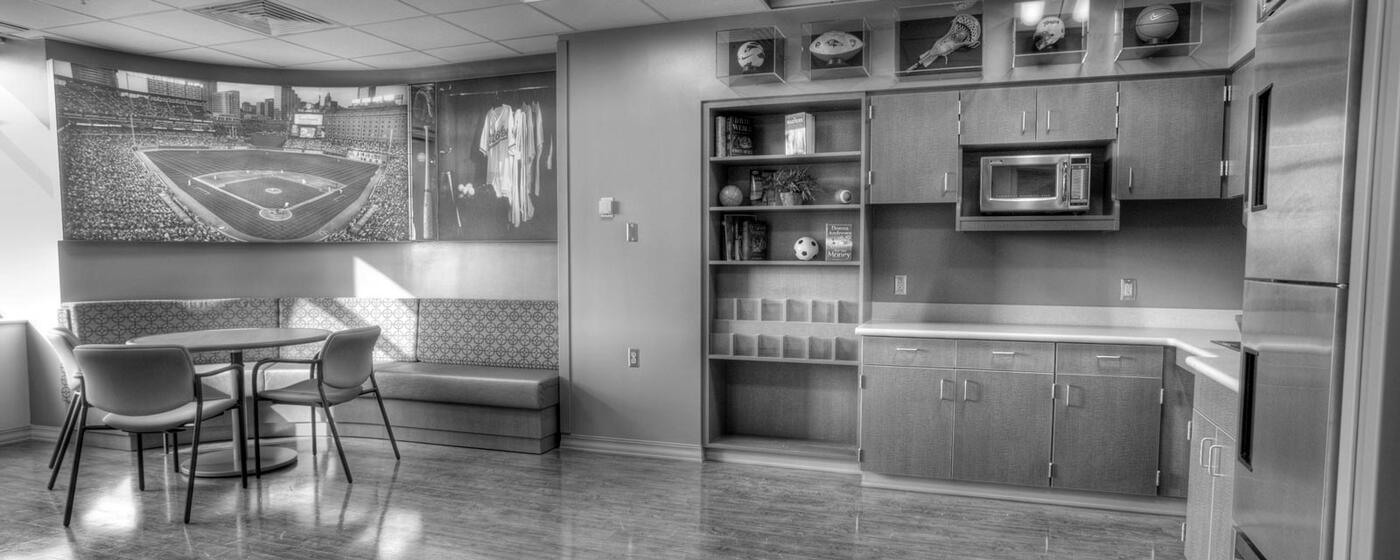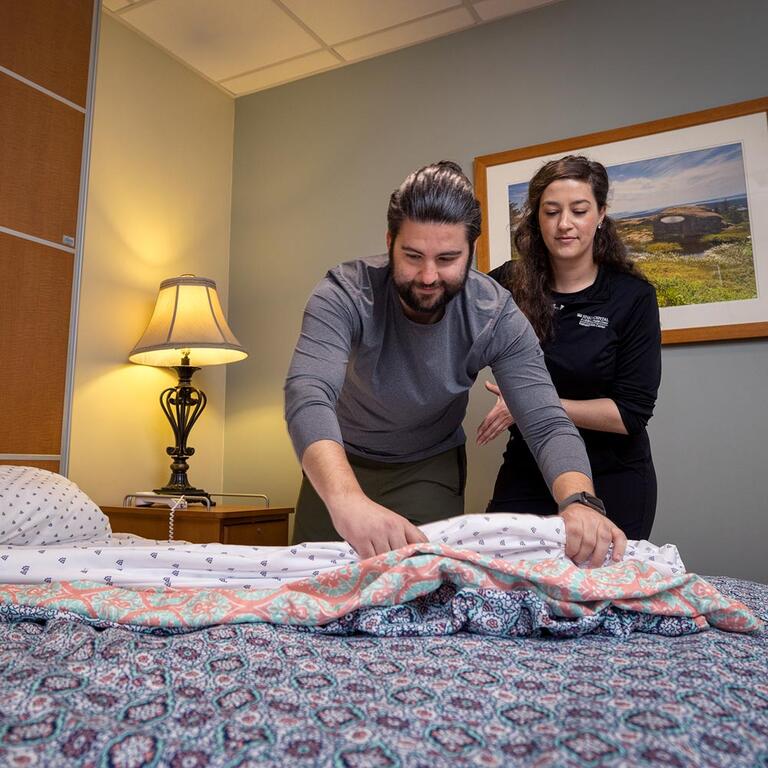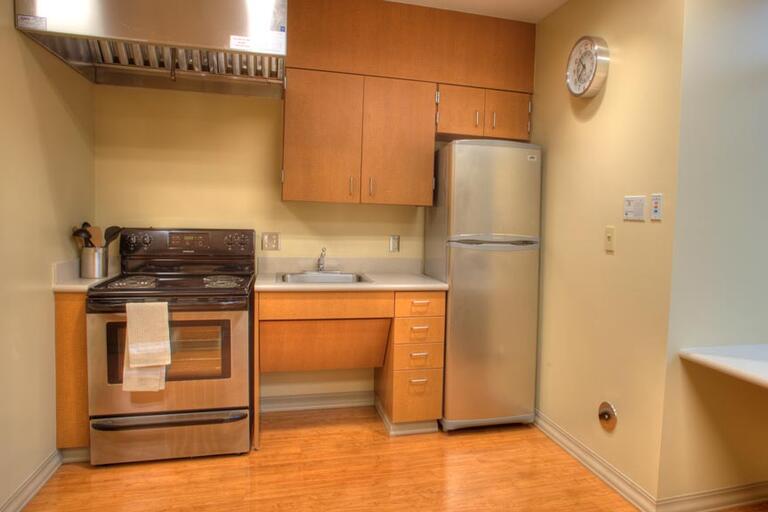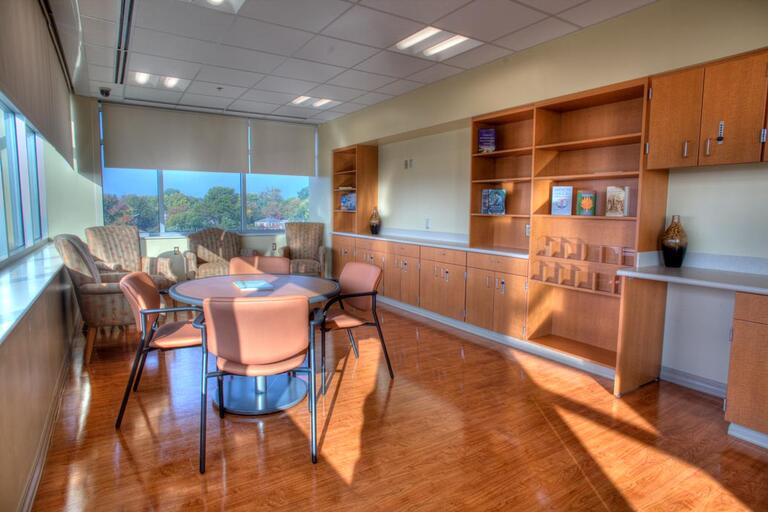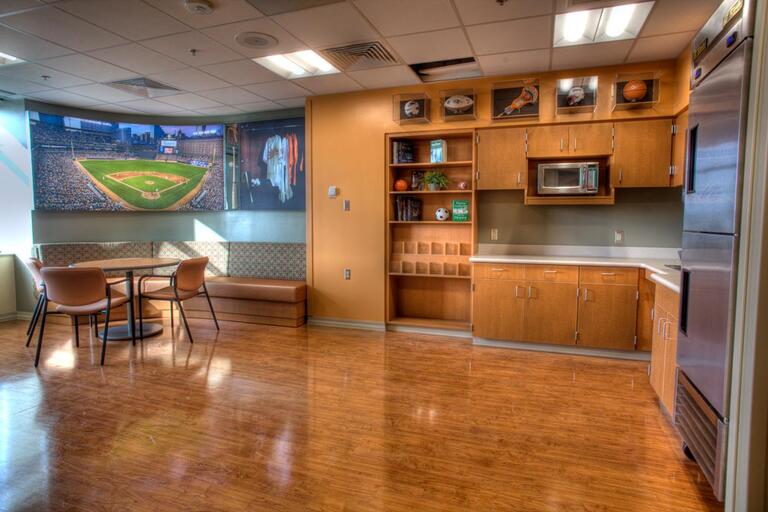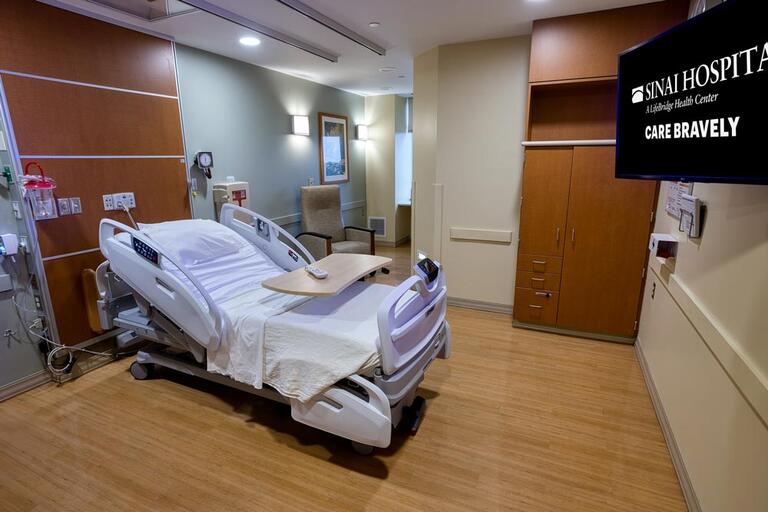When you arrive at the rehabilitation hospital, our nurses and doctors will meet with you to discuss and understand your individual care needs. Within the first 24 hours, our team of therapists will perform a detailed assessment to help you establish specific functional goals and optimize your recovery process. Your participation in all scheduled therapy sessions is key to the recovery process. Therapy is provided daily, including weekends and holidays.
Weekday Therapy: You’ll receive at least three hours of therapy each day, with a schedule tailored just for you.
Our patients can generally expect the following daily routine:
- Morning: Breakfast, therapy, bathing and dressing, vital signs, medications, bathroom care
- Afternoon: Lunch, therapy, vital signs, medications, bathroom care
- Evening: Dinner, rest, sleep, vital signs, medications, bathroom care
